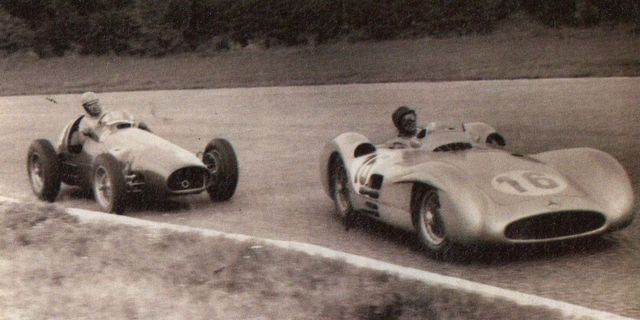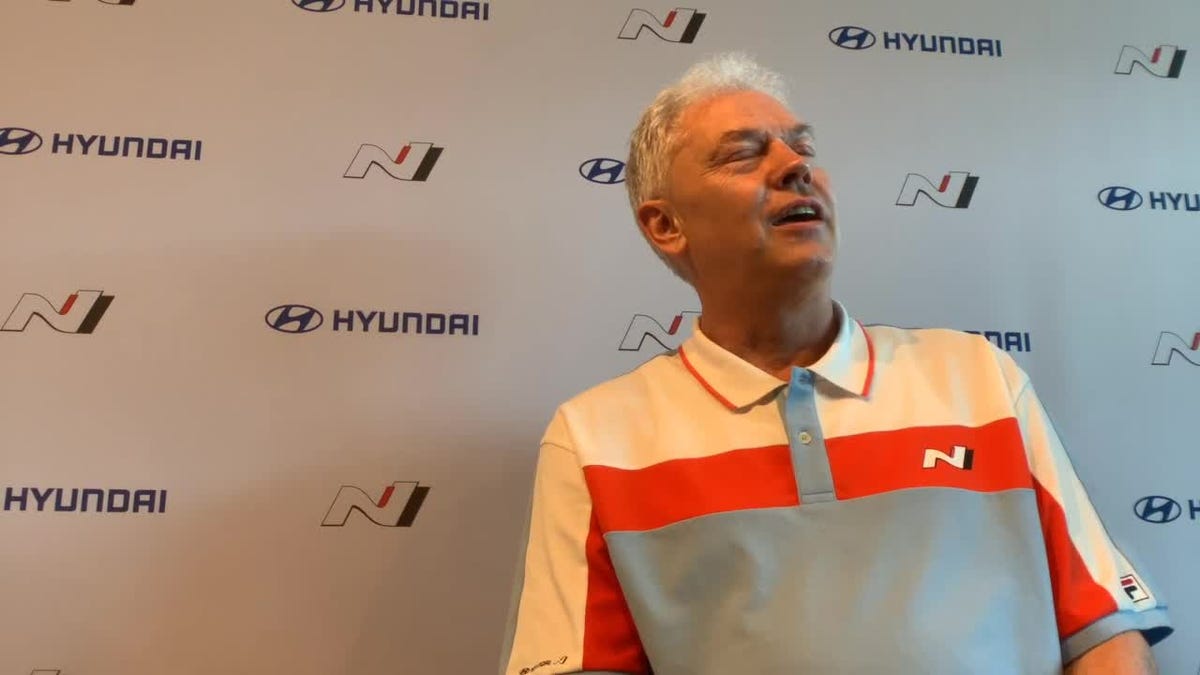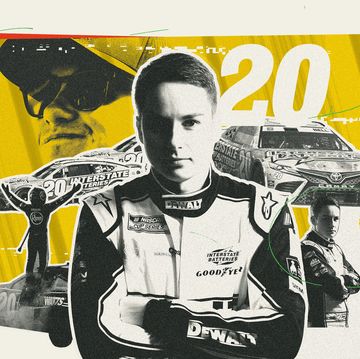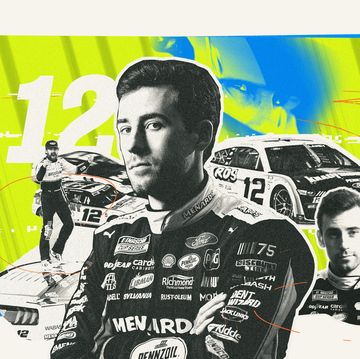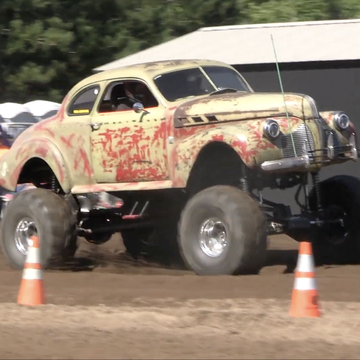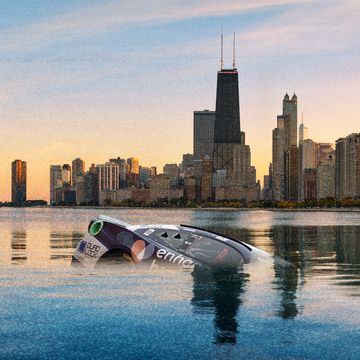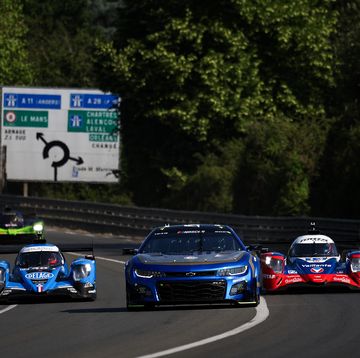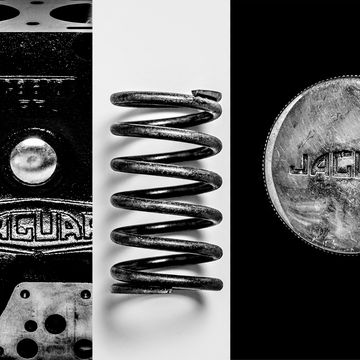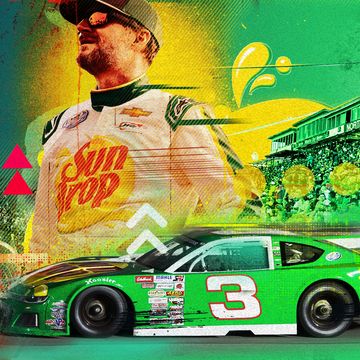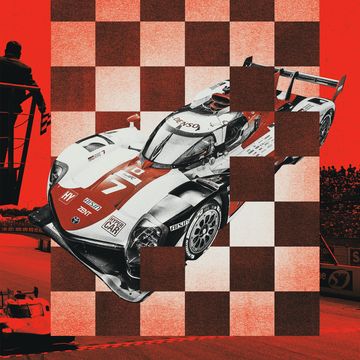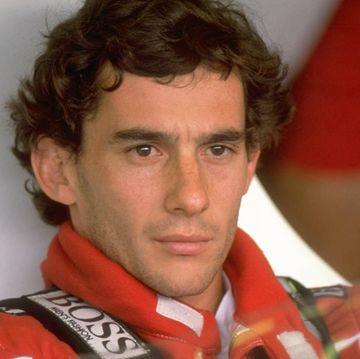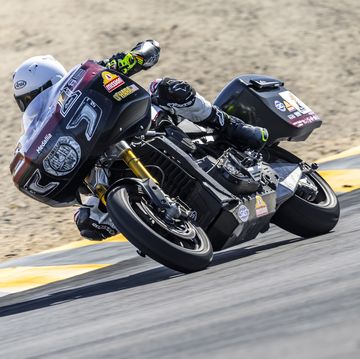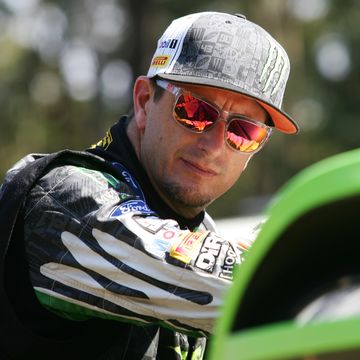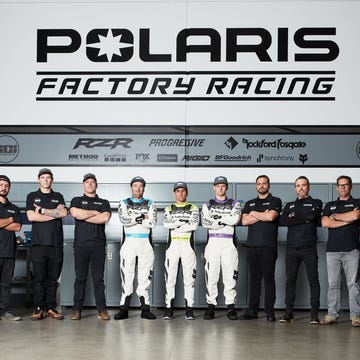On Friday, June 24, Fangio would have been 105 years old. The Bandy-Legged One, El Chueco, did not die on the track like so many others in his era, and ensuing eras; instead, having survived the calamities of midcentury motorsport, he passed away in Buenos Aires at the ripe age of 84, twenty years ago. Even Google bestowed the Argentinean great with the honor of a Doodle.
Fangio was the greatest driver of all time: it's true. It's science. El Maestro, a more positive nickname for the five-time Grand Prix champion, was adept at any length of racing, any form of motorsport: his first victory was at the grueling Gran Premio Internacional del Norte, a two-week sprint from Buenos Aires to Lima, Peru, and back, over six thousand miles. He was driving a 1939 Chevrolet Chevrolet, of all things. His first World Championship was in 1951, narrowly beating Alberto Ascari. In 1952 he missed a flight from Paris and drove all night to Monza for the Grand Prix, arriving half an hour before the race start. The sleep deprivation no doubt was to blame for his eventual crash, breakiong his neck in the process. He won the Carrera Panamericana in 1953, and entered the 24 Hours of Le Mans in 1955, the year of the disaster, and as a result of the horror he never raced at Le Mans again.
Out of 52 races he entered, he won 24 46.15% of them, higher than any other driver. (With a win percentage of 40%, Ascari came in second.) When he was kidnapped in Havana by gunmen from Fidel Castro's Movimiento 26 de Julio, during the disastrous 1958 Cuban Grand Prix, he shrugged it off: "well, this is one more adventure." The captors, in a bout of reverse Stockholm Syndrome, held him in awe.
Fangio's last victory was the 1957 German Grand Prix, at the Nürburgring. He started on pole in his four-year-old Maserati 250F. He was holding the lead, ahead of Peter Collins and Mike Hawthorn in brand-new Ferraris, when he took a pit stop 13 laps in. His team had strategized that if he started the race with half a tank, he could pit halfway through the 22-lap race, change rear tires, and still hold the lead. They figured the pit stop would take just thirty seconds. Fangio was leading by 28 seconds.
Big mistake. One pit mechanic lost a wheel nut, and it took half a minute, close to an eternity, to find it again. The whole disaster too 56 seconds. Fangio resumed the race 48 seconds behind, in third place.
He left the pits starting slowly, breaking in the new Pirelli tires, and the Ferraris enjoyed their steady lead. (In interviews, Fangio always maintained that he drove at the the slowest speed necessary to win, relying on sheer tenacity to get ahead.)
And then, in just ten laps, Fangio drove like a madman.
He shrunk the gap behind leader Hawthorn by 15 seconds. Then, 9 seconds. He broke the lap record nine times; seven of those times were in succession. On the 14-mile-long Nürburgring Nordschleife, the length worked to his advantage—he could sneak up on the Ferraris On the 21st lap, he passed Collins. He chased Hawthorn through the corners. And at Breidscheid, halfway through the track coming over the bridge at Adenau, he outbraked Hawthorn and took the lead.
The young Brit Hawthorn chased him for the remaining half lap and a half. To no avail. Fangio won by nearly four seconds. "I have never driven that quickly before in my life and I don't think I will ever be able to do it again," he said after the race. "I believe that on that day in 1957 I finally managed to master it. It was as if I had screwed all the secrets out of it and got to know it once and for all."
He finished the 1957 season with over twice the points as the second-place driver, Luigi Musso. It was his fourth consecutive World Drivers Championship—a feat that wouldn't be matched until Michael Schumacher.
And it would be his last time racing at the Nürburgring. A year later, he retired. At the 1958 French Grand Prix, Fangio and Hawthorn faced each other again, but this time, Hawthorn had the definitive lead: in an uncharacteristic midtake, Fangio spun out on the last lap. Hawthorn lapped him, but slowed down to let Fangio pass. He wanted to watch El Maestro's driving skills one last time. Fangio ultimately placed fourth. When he got out of his ailing Maserati, he simply told his mechanic, "it is finished."
Image via Wikipedia
